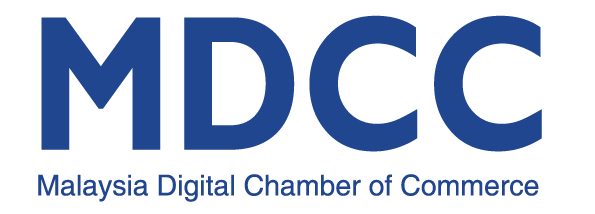The 12th Malaysia Plan 2021-2025 (12MP) is expected to take the existing digital inclusivity agenda further to accelerate inclusive development in the country as Malaysia aims to be a regional leader in the digital economy by 2030.
But more can be done to ensure digital advancement which parallels societal and technological developments, particularly in the post-COVID-19 era, said think-tank Social & Economic Research Initiative (SERI) chief operations officer Rashaad Ali.
For starters, he said the government should use the “new oil” – data – as an economic driver as it provides the necessary fuel for emerging technologies such as Artificial Intelligence (AI) and Quantum Computing.
“With data widely accepted as the lifeblood of the digital economy, unlocking the benefits of the digital era will depend on our ability to innovate, compete, and transact across borders,” he told Bernama. “It is certainly encouraging that the Malaysia Digital Economy Blueprint seeks to strengthen cross-border data transfer mechanisms to facilitate seamless data flows and we look forward to more details on this effort to improve regulatory coherence.”
Secondly, while emphasising that the blueprint specifically sets the goal of Malaysia having the highest number of submarine cable landings in ASEAN by 2025, Rashaad said the government should bridge the digital divide with digital infrastructure, dubbed as “the highways of the 21st century”, by reinstating the cabotage exemption policy for submarine cable repair works.
“This will allow foreign vessels to install and repair submarine cables while developing local capacity, and subsequently encourage more international submarine cable landings in Malaysia.
“It will also allow for shorter repair times resulting in improved connectivity, attract more global data centres to reside in Malaysia, and bolster capabilities of domestic data centre companies,” he said.
Thirdly, Rashaad said skills development is a crucial element to help realise Malaysia’s digital economy aspirations, as jobs in the future would increasingly require a combination of soft skills and hard technical skills.
“While there is an increased demand for skills like data analytics and coding, soft skills such as curiosity, innovation, empathy, and adaptability are equally important, and a hybrid approach must be infused into educational institutions as we work to develop a globally competitive workforce,” he advised.
As the government works towards its vision of trusted, inclusive, and sustainable socio-economic development, Rashaad said SERI welcomes the government’s efforts and looks forward to clarity on the next steps, thus enabling a greater role to be played by civil society, academia, and the private sector.
“The government has many worthy and willing partners in Malaysia’s digital ecosystem, and does not have to execute this vision alone,” he added.
Malaysia’s wider foray into the information and communication technology (ICT) industry had commenced with the Multimedia Super Corridor (MSC) initiative in 1996.
Realising the importance of leveraging on the advancement of technology, the government has emphasised strengthening the digital infrastructure as it is the fundamental factor to adopt digitalisation and emerging technologies.
Fast forward to November 2020, Malaysia has set up the National Digital Economy and Fourth Industrial Revolution (4IR) Council as the highest governance authority that decides on policies, implement and monitor the digital economy as well as implement 4IR strategies and initiatives.
This council seeks to ensure a complete feedback loop by adopting transparent and distinct monitoring and evaluation mechanism.
The recent launch of Malaysia Digital Economy Blueprint in February 2021 also marked another milestone in moving Malaysia towards being a high-tech nation.
Under the blueprint, the building of enabling digital infrastructure is one of the key thrusts to accelerate digital economy growth, and it also specifies strategic initiatives to drive digitalisation in ensuring digital inclusion.
While the COVID-19 pandemic has amplified the importance of the digital economy in resuming economic activities and ensuring uninterrupted public service delivery, the new norm has heightened the necessity for nationwide broadband services in an effort to ensure connectivity to all.
The implementation of the national digital infrastructure plan known as Jalinan Digital Negara (JENDELA) since 2020 will increase broadband connectivity, using a comprehensive and holistic approach in optimising resources.
Besides, Malaysia has also made great improvements in enhancing the state and coverage of such foundational infrastructure, as regulatory reforms through the Mandatory Standard on Access Pricing (MSAP) not only have reduced broadband prices but also increased broadband speed.
Knowing that broadband internet networks are a crucial national infrastructure, Malaysia had, in June 2021, declared telecommunication services as a public utility, of which the priority is for every individual to have access to telecommunication services, particularly the internet.
By designating telecommunication services as a public utility, Malaysia is moving ahead in ensuring people and businesses have better access to the internet and be more globally connected.
The initiative will also help to bridge the digital divide, allow the rakyat to learn and experience new and emerging technologies and prepare the youth to be digitally ready.
This will ensure that no one is left behind as the nation moves towards achieving inclusive development.




Leave a Comment